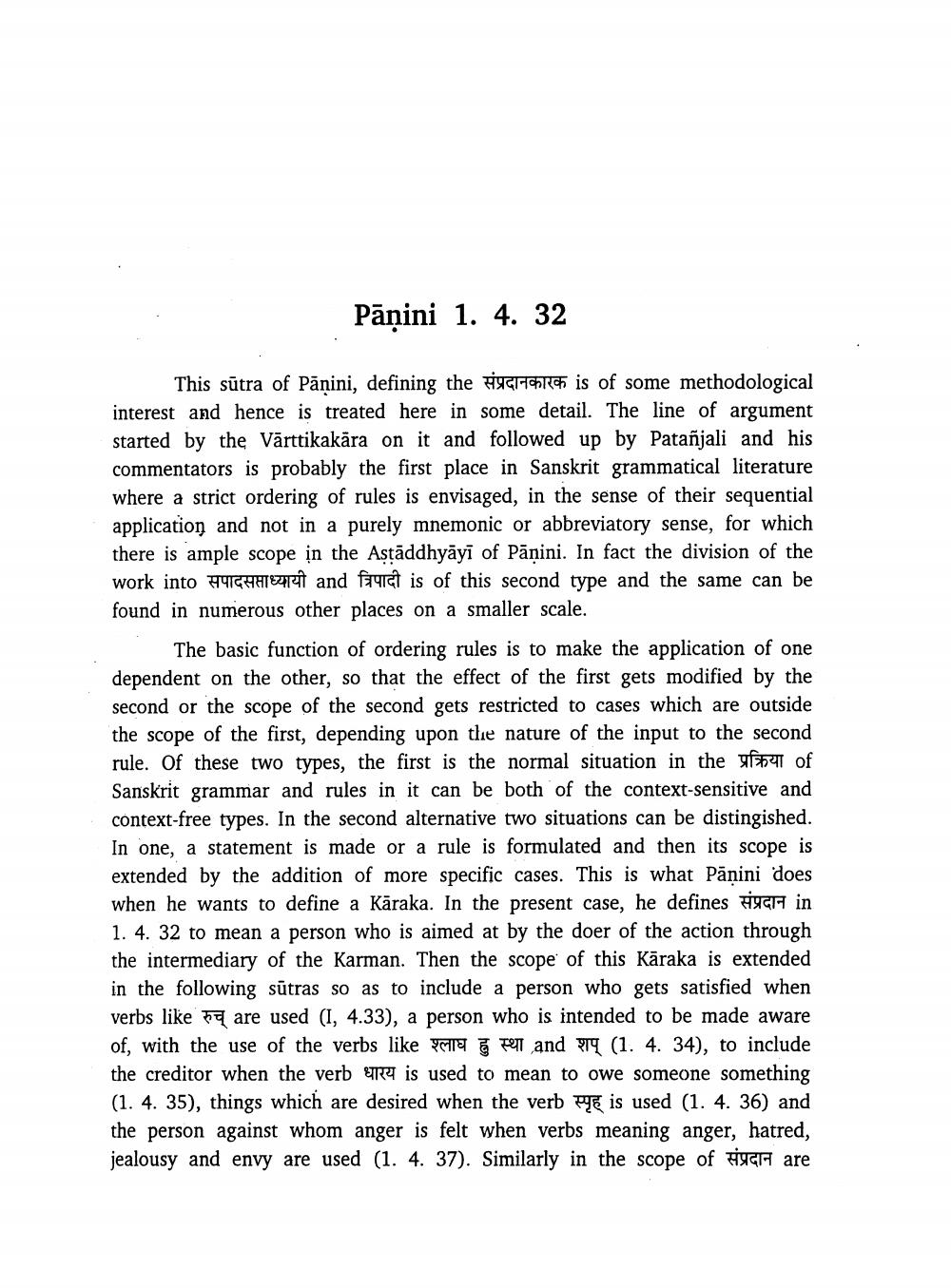________________
Pāņini 1. 4. 32
This sūtra of Pānini, defining the HIGH Rich is of some methodological interest and hence is treated here in some detail. The line of argument started by the Vārttikakāra on it and followed up by Patañjali and his commentators is probably the first place in Sanskrit grammatical literature where a strict ordering of rules is envisaged, in the sense of their sequential application and not in a purely mnemonic or abbreviatory sense, for whic there is ample scope in the Astāddhyāyī of Pāṇini. In fact the division of the work into 44GHTER and fruit is of this second type and the same can be found in numerous other places on a smaller scale.
The basic function of ordering rules is to make the application of one dependent on the other, so that the effect of the first gets modified by the second or the scope of the second gets restricted to cases which are outside the scope of the first, depending upon the nature of the input to the second rule. Of these two types, the first is the normal situation in the use of Sanskrit grammar and rules in it can be both of the context-sensitive and context-free types. In the second alternative two situations can be distingished. In one, a statement is made or a rule is formulated and then its scope is extended by the addition of more specific cases. This is what Pānini does when he wants to define a Kāraka. In the present case, he defines HYGA in 1. 4. 32 to mean a person who is aimed at by the doer of the action through the intermediary of the Karman. Then the scope of this Kāraka is extended in the following sūtras so as to include a person who gets satisfied when verbs like 5 are used (1, 4.33), a person who is intended to be made aware of, with the use of the verbs like a real and 4 (1. 4. 34), to include the creditor when the verb ere is used to mean to owe someone something (1. 4. 35), things which are desired when the verb pe is used (1. 4. 36) and the person against whom anger is felt when verbs meaning anger, hatred, jealousy and envy are used (1. 4. 37). Similarly in the scope of YGF are




